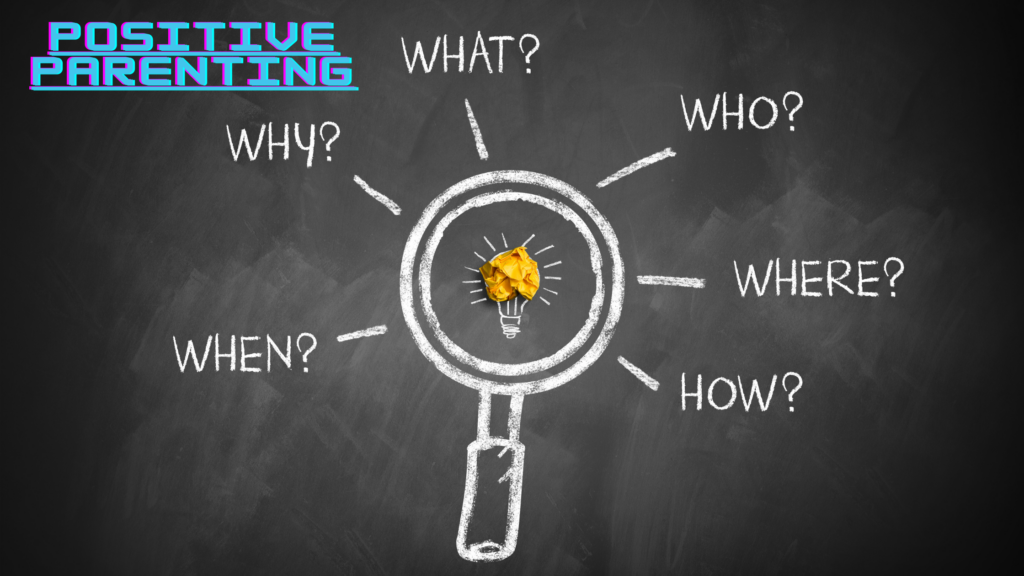Positive Parenting: What, Why, And How

Education is not permission
Your children deserve to be autonomous and sexually fulfilled adults. Isn’t it your goal for your children to have happy and healthy relationships with each other? When you help them, you’re being sex-positive. When used with parenting, the term “sex-positive” might be misinterpreted as promoting a permissive or “anything goes” attitude toward sexuality… That’s just not true at all! It’s not permissive parenting; it’s an extension of overall positive parenting. It also includes teaching children how to communicate, live without shame, appreciate their bodies, and be vulnerable, among other things. You should support your child’s sexual maturation from childhood through adolescence and adulthood by teaching them about the risks and benefits of sexual activity, as well as how it can strengthen their relationships with others. This book is not just about sexual education; it is about the roles that sex and sexuality play in the healthy development of intimate relationships.
It’s surprising how difficult communication maybe… but you have to do it!
Parents should remember that the basis for their child’s promotion of the self is laid when you and your child form a trusting, respectful, open relationship. When you communicate effectively with your child, you can teach them your beliefs while also assisting them in managing an increasingly complicated world. Early communication patterns will be carried over into your child’s adult relationships, so it’s important to establish good ones with your child when they’re small and reinforce them as they get older. Now is the time to set a good example. In addition, if you learn through this book that you’ve committed mistakes in the past, this is the perfect opportunity to make up for those errors.
Communication between parents and adolescents is a protective factor in adolescent sexual behaviour, resulting in later sex initiation, more consistent condom usage, and less risky behaviour.
Relationships between parents and their teenage children are stronger when discussing sex frequently.
More than 25,000 adolescents were studied over many years in an important study on the relationship between parent-adolescent communication and safer sexual practices. Researchers discovered that sexual relations between parents and their children significantly impacted their decision to use contraceptives and condoms in intercourse.
Increased contact with parents about sexual problems was also linked to increased communication with romantic partners.
Many teens don’t talk about sexual subjects with anybody, even their parents or friends or their dating partners—and attempts to do so fail when sex is characterized simply as the cause of disease or the possibility of conversation is silenced by an authoritative proscription of having sex at all. You don’t want to leave your child in the dark.
So, start having those discussions early and often!
Should your child’s education on sex be dictated by their school, peers, and pornographic material, or should you take a different approach? No way
As a result of your awareness of your unique opportunity to improve on your upbringing, you’ve found yourself here, browsing the chapters of this book. You can convey your values and your truth through the messages you want to send.
If you’re talking about sex, it’s not something you should do once or only amid an urgent situation.
How old should you begin to discuss sex with your child as a parent? As soon as they can converse, of course! Sex-positive education should begin at birth and continue throughout a child’s life, with developmentally appropriate explanations and discussions, rather than being compressed into a single monologue, as in a one-off “Talk.”
A common problem among parents is the inability to express themselves verbally or nonverbally regarding sexual activity. Given that children are inevitably exposed to racist media and various current social issues regarding gender and sexuality, it is more difficult for parents to have these discussions sooner and more frequently.
As a parent, you may avoid discussing sex, gender, reproduction, and identity with your children because you are concerned about being too lenient or drawing too much attention to the subject of sex. You may also be unable to begin because you are unsure where to begin or when to begin. In addition, some parents may be concerned that their children will be enticed to experiment if they obtain any understanding of the sexual arena. It’s true that telling your children about a dangerous cliff does not necessarily make them want to jump off it!
As a result, many parents entrust schools with the critical tasks of educating their children about healthy sexual behaviour. Unfortunately, this task is rarely undertaken early enough or adequate. School sex education programs vary widely in their coverage of current sexual issues, with many failing to include any of them at all. By the time students are in middle school, their parents’ political, religious, and other beliefs, as well as their nervousness, have moulded their knowledge of the world. Don’t entrust this vital responsibility to the school system. Take matters into your own hands and take control of the situation. Doing so with ease and confidence is the goal.
